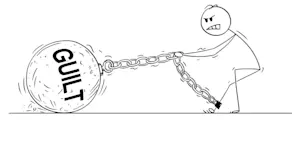What Makes This Word Tick
"Trudge" is the kind of word that makes you feel tired just thinking about it. It's not just about walking; it's about walking in a way that suggests every step is a chore. Whether you're trudging through snow or trudging home after a long day, there's a sense of perseverance mixed with a dash of fatigue.
If Trudge Were a Person…
Trudge would be that seasoned hiker who's seen a few too many rain showers and muddy paths but keeps plodding along regardless. Picture someone with well-worn boots and a resolute gaze that says, "I'll get there, come rain or shine."
How This Word Has Changed Over Time
Interestingly, "trudge" hasn't undergone a huge transformation over the years. Its usage has remained fairly consistent, always capturing that essence of laborious forward movement. However, today you might hear it more often used metaphorically, to describe getting through a tough task or day.
Old Sayings and Proverbs That Use Trudge
While direct proverbs featuring "trudge" are scarce, its spirit is embedded in sayings like "slow and steady wins the race." The trudge is less about speed and more about resilience and determination.
Surprising Facts About Trudge
Did you know that "trudge" has its origins linked to the Middle English word "trudgen," which implied an act of dragging along? It's no wonder it so perfectly paints the picture of someone slogging through tough conditions.
Out and About With This Word
Imagine a group organized by local libraries where people "trudge" together — a kind of social event for exercise enthusiasts who prefer their walks with less pep and more conversation. It offers a nice reminder that a slower pace can be quite companionable.
Pop Culture Moments Where Trudge Was Used
The word makes cameo appearances in several movies when characters are on epic quests. Imagine a hero trudging through a dense forest in a fantasy film, embodying both weariness and resolve without saying a word.
The Word in Literature
Authors love using "trudge" to set scenes of adversity or introspection. In novels, you might find weary travelers trudging toward destiny or characters reflecting on life’s burdensome journey.
Moments in History with Trudge
Imagine soldiers trudging back from WWII; the word captures the weight of their experience, each step heavy with stories untold. In such contexts, "trudge" becomes a silent testament to endurance.
This Word Around the World
While the English "trudge" evokes a specific kind of effort, the feeling is universal. In Japan, a similar sentiment is captured in a phrase like "trudge through mud," used to describe slogging through difficult times gracefully.
Where Does It Come From?
Rooted in Middle English, "trudge" also has traces of similar-sounding words in Old Norse and Dutch, all carrying meanings related to heavy or weary walking. It’s as if the concept has trudged its way through various language families!
How People Misuse This Word
Sometimes people use "trudge" too lightly, talking about a casual stroll or a short walk. However, to truly 'trudge' is to experience a deeper challenge, both physical and emotional.
Words It’s Often Confused With
Trek: While it also suggests a long journey, trekking is often more planned and adventurous than trudging.
March: Marching implies more purpose and often uniformity, whereas trudging is more personal and effortful.
Limp: Limping involves a physical impairment, while trudging is more about fatigue or effort.
Additional Synonyms and Antonyms
Synonyms for "trudge" might include "plod," "slog," and "tramp." Antonyms could be "skip," "stroll," or "march" — all suggesting a lighter or more upbeat pace.
Want to Try It Out in a Sentence?
After hours of hiking in the dense forest, we had to trudge back to our campsite, each step heavier than the last.
















